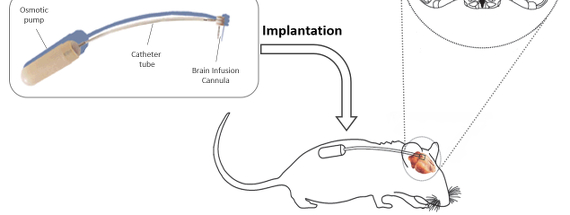Involvement of WNT signaling pathway in the adult hippocampal synapses: role in neuroprotection.
2014

Wnt ligands are signaling proteins highly expressed during the nervous system development, where they participate modulating axonal remodeling, dendritogenesis and synaptogenesis. In the adult brain, components of Wnt signaling are still expressed, however little is known about its role in mature synapses. Emerging in vitro studies have implicated Wnt signaling in synaptic plasticity of the adult brain. Additionally, it has been shown that activation of Wnt signaling protects against amyloid-β-induced synaptic impairment. Now, in this work we have studied the involvement of Wnt signaling in the regulation of adult normal cognitive function, in vivo. Moreover, the beneficial effect caused by the activation of Wnt signaling in the cognitive function of double transgenic mouse, APPswe/PS1dE9, model of Alzheimer’s disease, has also been evaluated herein.
The effects of Wnt signaling activation on the cognitive function of wild type and transgenic mice, was accomplished through the chronic administration of the Wnt signaling modulators WASP-1 and FOXY-5. As shown here, both treatments improve behavioral performance of mice evaluated for episodic memory tests, as well as, increase basal excitatory synaptic transmission and hippocampal long-term potentiation of adult mice. Furthermore, WASP-1 prevents synaptic protein loss, reduces the tau phosphorylation and blocks amyloid-β aggregation in transgenic mice.
Altogether, these results suggest that Wnt signaling could play a key role in regulating synaptic plasticity of neural circuits and therefore controlling the outgoing cognitive function of adult mice. Moreover, the activation of Wnt signaling could be a promising new therapeutic target for Alzheimer’s disease treatment.

- Nombre: Jessica Vargas Galarce
- Laboratorio: Neurobiología Molecular - CARE Chile UC
- Mención: Biología Celular y Molecular
- Director Tesis: Nibaldo Inestrosa
Artículos Publicados
1. Vargas, J.Y., Fuenzalida, M. and Inestrosa, N.C. (2014) In vivo activation of Wnt signaling pathway enhances cognitive function of adult mice and reverses cognitive deficits in an Alzheimer’s diseases model. J. Neurosci. 34(6): 2191-202
2. Vargas, J.Y., Ahumada, J., Arrázola, M.S., Fuenzalida, M., Inestrosa, N.C. (2014) WASP-1, a canonical Wnt signaling potentiator, rescues hippocampal synaptic impairments induced by Aβ oligomers. Exp. Neurology. Sometido
3. Oliva C.A., Vargas J.Y. and Inestrosa N.C. (2013) Wnts in adult brain: from synaptic plasticity to cognitive deficiencies. Front Cell Neurosci. 7: 224
4. Oliva C.A., Vargas J.Y. and Inestrosa N.C. (2013) Wnt signaling: role in LTP, neural networks and memory. Ageing Res Rev. 12(3): 786-800
